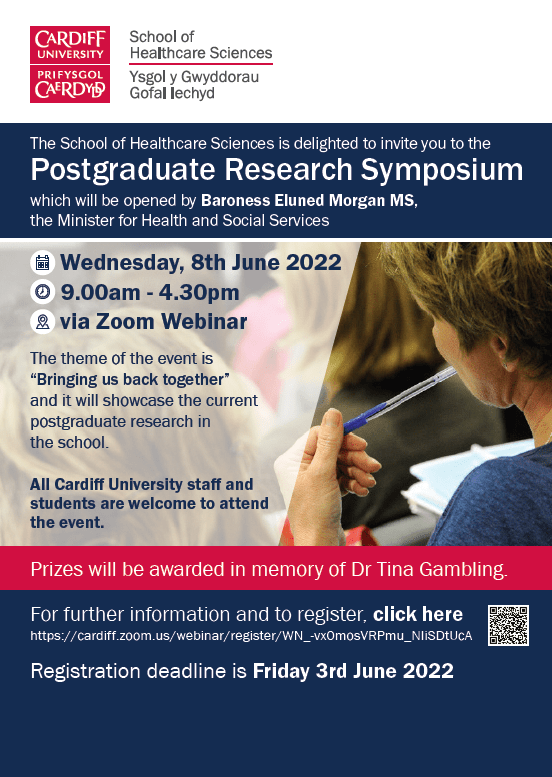Most of today I spent in the School of Healthcare Sciences’ Bringing us back together postgraduate research symposium, and very much enjoyed hearing about the projects which doctoral students in the School are engaged in. The event was opened by Eluned Morgan, Minister for Health and Social Services in the Welsh Government, who spoke in support of the health care workforce and of the importance of research which makes a difference to the care and treatment which people receive.
The talks which followed demonstrated, faultlessly, how applied the School’s postgraduate research projects are. Amongst our 90 or so research students are people investigating the improvement of clinical interventions. Many are also examining the experiences of people with long-term conditions and the support they receive, whilst others are exploring aspects of the workforce and the organisation and delivery of services.
This symposium, set up by Dr Tina Gambling who served with great distinction as the School’s Director of Postgraduate Research prior to her untimely passing in November 2020, is (or has been) an annual event, the organisation of which is always led by students with support from staff. The organising committee for today did a very fine job, as did the session chairs and speakers. The Bringing us back together theme, too, felt right.
Follow @benhannigan
 With
With